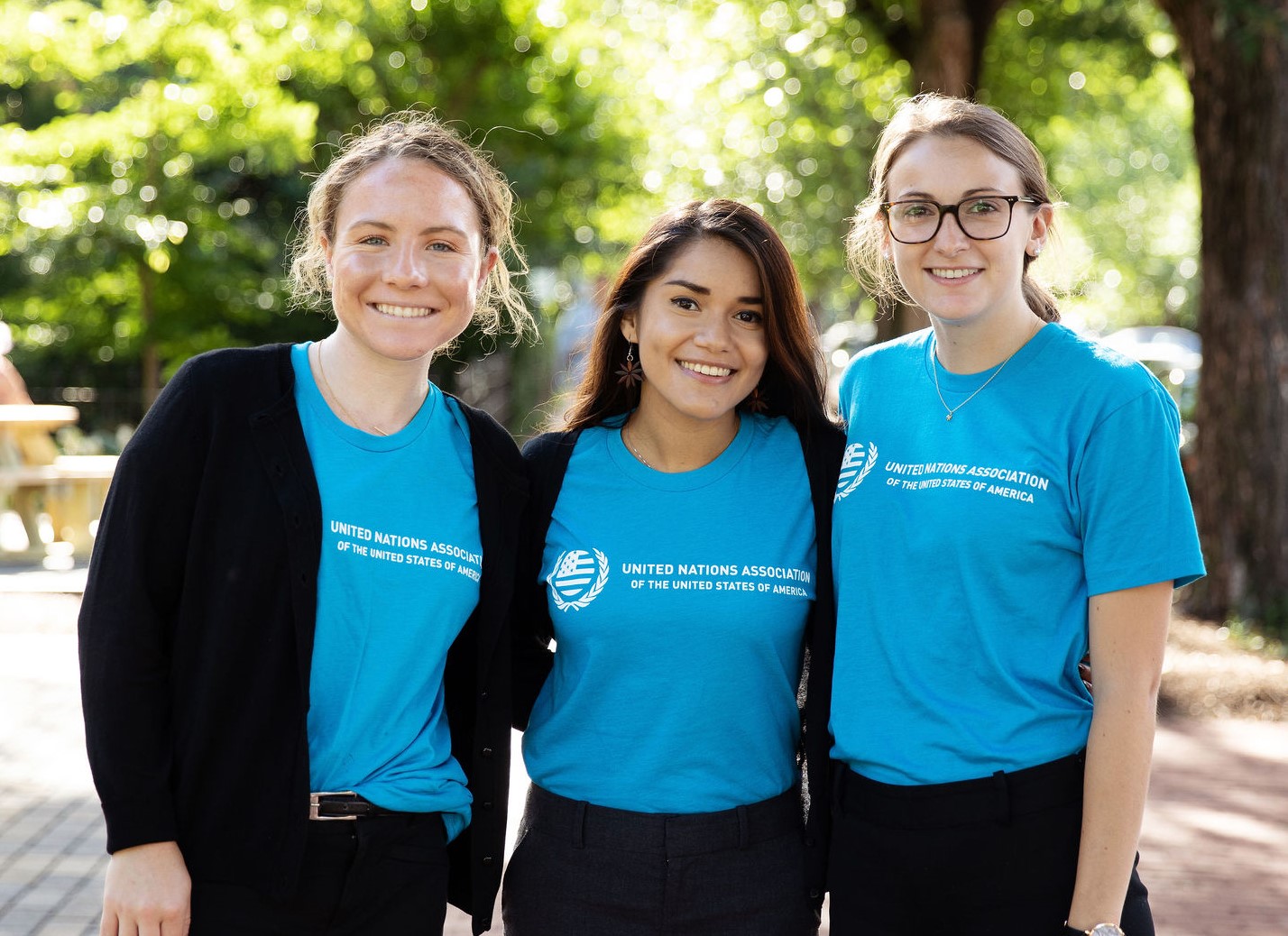ALASKA AND THE UN
In 2024, Alaska companies secured
From aviation to Arctic science, Alaska’s ties to the United Nations
showcase how local expertise makes a global impact.
Economic Impact
In 2024, Alaskan companies secured $3.1 million in UN contracts, generating revenue and supporting jobs across the state.
Anchorage-based Lynden Air Cargo reflects Alaska’s global reach. Through its partnership with the World Food Programme, Lynden has delivered emergency supplies to disaster zones in Africa.
Environmental Cooperation
Alaskans see the effects of climate change up close. The state’s scientists, coastal communities and indigenous leaders are essential contributors to UN research and action on the Arctic.
The UN Environmental Program and World Meteorological Organization rely on Alaska’s monitoring stations to feed global climate models. In fact, in 2024, Alaska’s Arctic Regional Climate Centre Network (ArcRCC-Network) was designated the first WMO Regional Climate Centre (RCC) dedicated to the polar regions. The International Maritime Organization’s Polar Code also strengthens safety and environmental protection in Arctic shipping lanes.
Through the Arctic Council, where several UN agencies serve as observers, Alaska Native representatives help shape international dialogue on sea ice loss, fisheries and sustainable development. By connecting local knowledge to global frameworks, the UN helps Alaskans manage fisheries, adapt to permafrost melt and safeguard natural heritage for future generations.
Defense and Global Security
Alaska’s military bases and the NORAD early-warning radar network help detect threats, reinforcing the security foundation for UN peace efforts.
The Alaska Air National Guard has deployed abroad for disaster relief and peacekeeping support. The U.S. Coast Guard in Kodiak enforces international maritime rules under the IMO, curbing illegal fishing and pollution in the North Pacific. Even Alaska’s defense contractors play a role, supplying specialized cold-weather gear and aircraft support used on UN-sanctioned missions.
Cultural Heritage
Alaska’s landscapes and traditions resonate globally through UNESCO. The Glacier Bay Park system — one of the largest transboundary World Heritage Sites — showcases the world’s largest non-polar ice field. The UNESCO designation draws international tourists and scientists, spotlighting Alaska’s role in preserving biodiversity.
Health and Human Resilience
Remote villages, high TB rates and water challenges make Alaska’s health needs unique. UN agencies and affiliates have stepped in with targeted support, aligning with World Health Organization (WHO) goals on TB eradication and water sanitation.
Alaska also contributes outward. State labs report influenza strains to WHO’s global surveillance system, helping ensure vaccines protect Alaskans and the world alike. University researchers collaborate on Arctic health studies, linking climate change to mental health and food security. Traditional medicine and telehealth innovations developed in Alaska are shared globally through UN networks.
Multicultural Impact
Though far from traditional entry points, Alaska has welcomed more than 1,200 refugees since the 1980s, many resettled through UNHCR-affiliated programs. Each year, roughly 100-125 newcomers arrive, often in Anchorage, supported by local groups like Catholic Social Services. Refugees have enriched Alaska’s workforce — from fisheries to manufacturing — and infused neighborhoods like Mountain View with new cultural life.
Education and Youth Engagement
Alaska’s students and educators are building global ties. High schools in Anchorage, Fairbanks and Juneau send delegations to Model UN conferences, where Alaskans debate global issues with peers worldwide. The University of Alaska hosts an annual Global Humanitarianism Symposium, and faculty from Fairbanks contribute to the Intergovernmental Panel on Climate Change (IPCC) and UN climate initiatives. Peace Corps volunteers from Alaska serve abroad, while the Alaska World Affairs Council brings UN ambassadors and experts into local classrooms.
